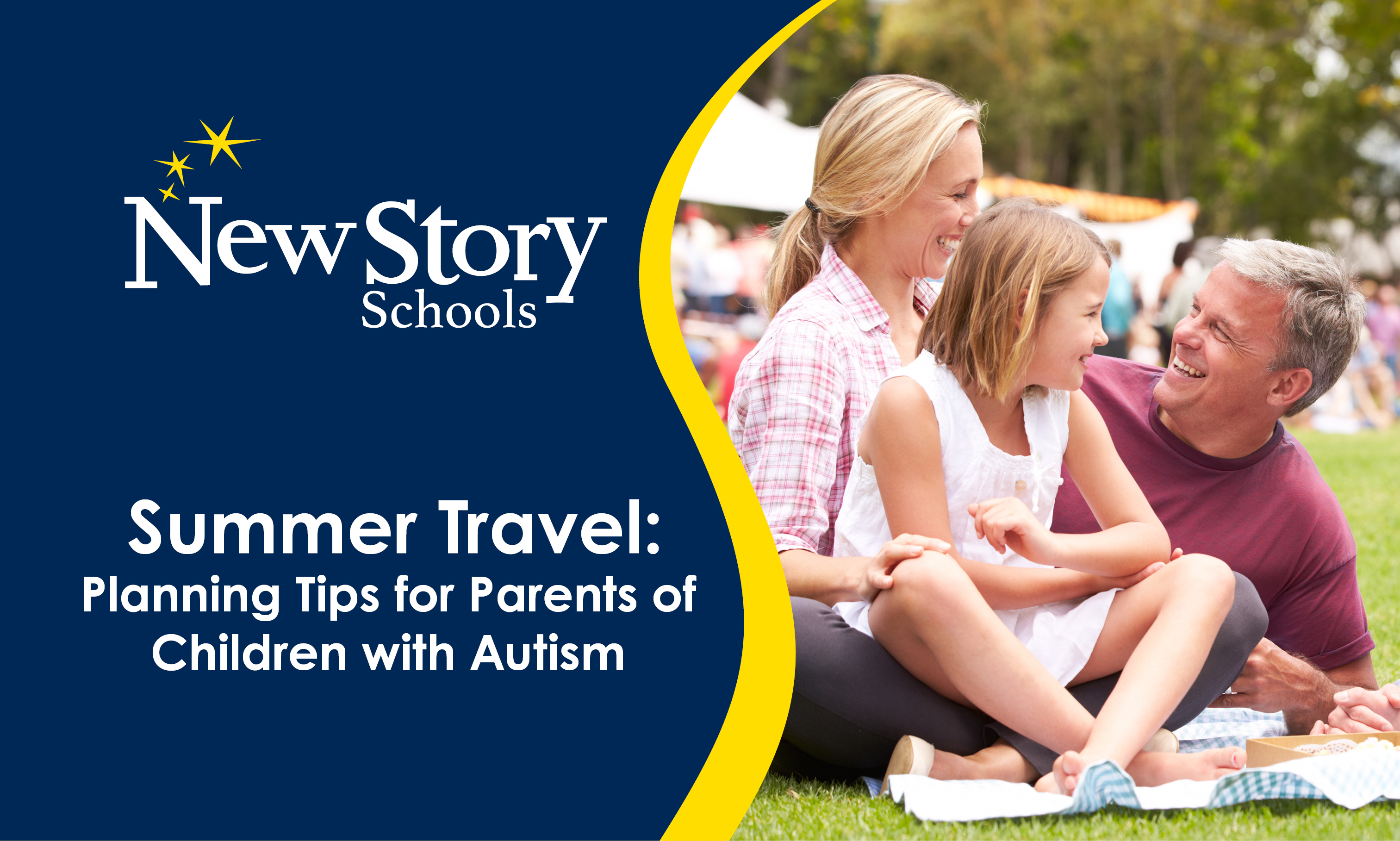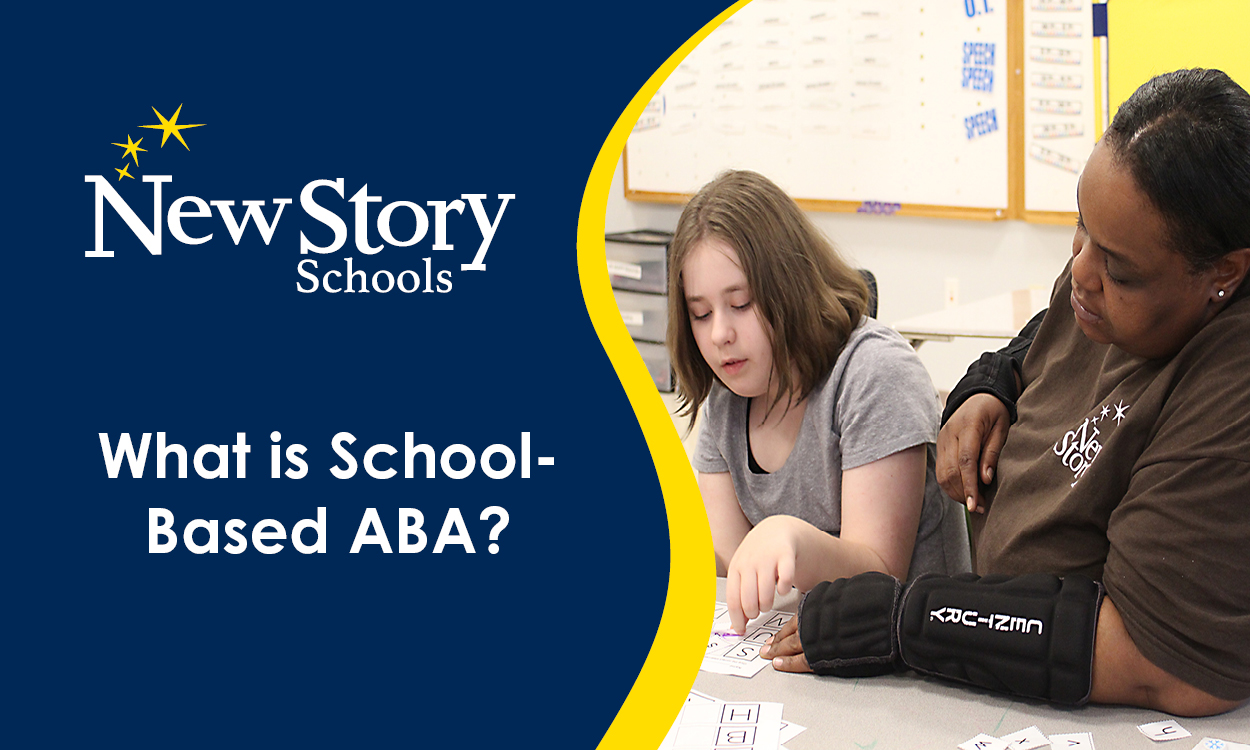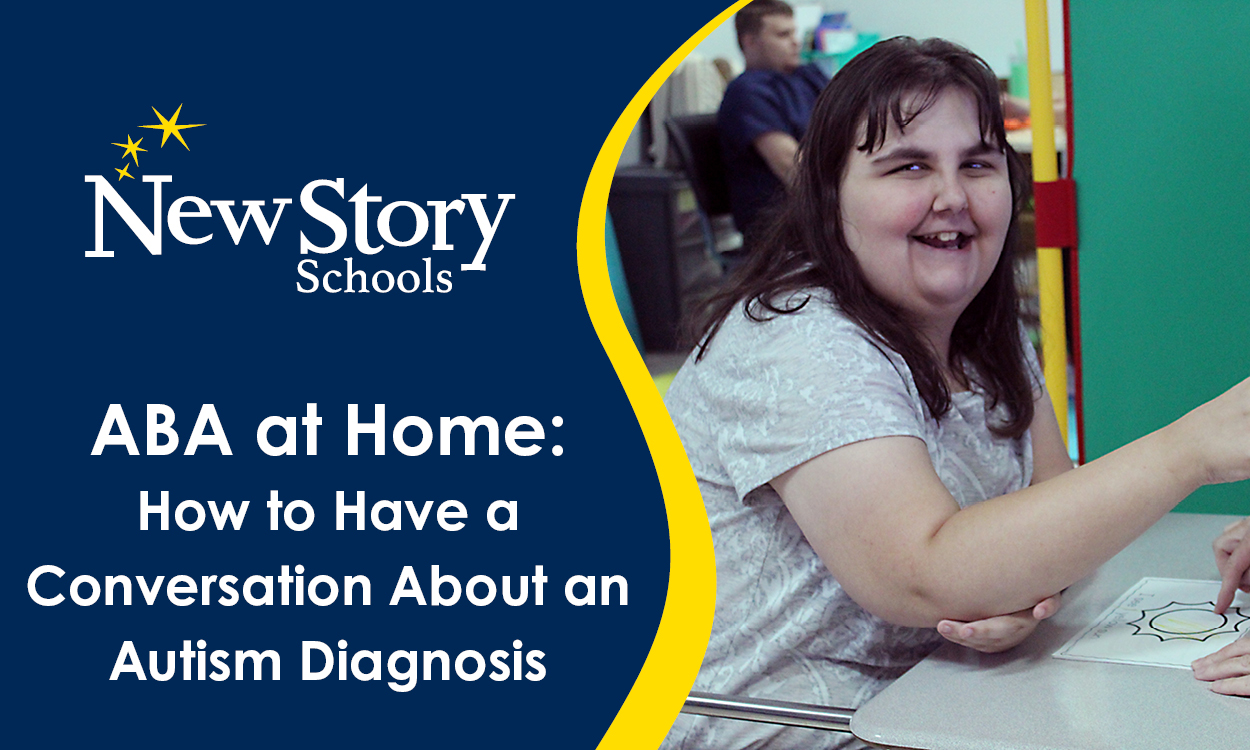Summer Travel Tips for Autism Parents
Posted: April 28, 2023 | Written By: Michelle Brown | Category: At Home Help

Summertime is almost here. Reservations are made, tickets are purchased, and bags are packed. You’ve invested valuable time and money in the hopes of having a good time, relaxing, and making memories with your family. But what if things go awry? Is it worth all the money, effort, and potential meltdowns? Traveling can be particularly challenging for families with children on the autism spectrum. However, with some preparation and patience, your family can have excellent summer adventures. Here are some tips to help you along the way.
Have a schedule and a backup plan
- Children (and adults) with autism almost always benefit from knowing the “whens” and the “wheres” of a given situation. Knowing what is going to happen ahead of time can alleviate a lot of unnecessary stress and uncertainty.
- Replicating routines from home as much as possible can be a huge help. Wake-up times, bedtimes, and meal times will go much smoother if they are happening at consistent and predictable times.
- The scheduling stage is the perfect opportunity to get your child’s input on places and activities that excite them. The more involvement they have in this planning stage, the better.
- No matter how well you plan, there are bound to be unexpected disruptions. Have a backup plan in case things don’t go as expected. Be sure to talk with your child ahead of time to discuss possible changes. Build lots of breaks and downtime into your schedule too. Those will benefit you as well as your child.
- Many kids appreciate having a printed or digital itinerary to reference throughout the trip. Depending on your child's abilities and interests, these could range from as simple as a list of photos or icons to fully detailed dates, times, and routes. Here is a great trip planning worksheet to help you get started.
Bring soothing and sensory items
- Big sounds, bright lights, and large crowds can be overstimulating, overwhelming, and sometimes downright scary. While it’s great to minimize or avoid loud, bright, crowded places as much as possible (like going during off seasons or during slower hours) overstimulation can be difficult to avoid entirely. It can be incredibly helpful to bring familiar things, favorite toys, and soothing comfort belongings.
- Here are some items that help kids with autism feel more comfortable, not only on trips, but any time at all.
- Noise canceling earmuffs or headphones
- Weighted blankets or weighted stuffed animals
- Light sensitivity glasses or sunglasses
- Sensory “hug” compression vests
- A small backpack or bag of favorite things and sensory items
- Fidget toys, putty or play dough, travel-sized games (A license plate game or app is perfect for car rides), small electronics (tablets or gaming devices) — here are some great apps for kids with autism
(Erin, a K-12 autistic support teacher, shares that many of her students have a “happy bag” with a few favorite belongings and activities and calming items that they carry everywhere they go. For instance, an avid artist may carry drawing supplies in addition to noise canceling headphones. Someone else may have some favorite fidget toys and a pair of light sensitivity glasses. One student has a weighted teddy bear that she sits on her lap and hugs in order to feel safe when she’s overwhelmed. “It makes a world of difference to have these familiar things on hand, especially in unfamiliar places.”)
It’s all about the food
- Food can be a delightful treat, or a tricky challenge when traveling. If you anticipate difficulties, try to find out available food options for travel routes and destinations and discuss them with your child ahead of time. It helps to view menus and choose foods online before arrival if you’re eating out, or choose a pick up / delivery option as needed.
- It’s always a good idea to bring along some favorite food items and have them on hand in case your child isn’t able to find something they’re comfortable eating.
- Sometimes a favorite ice cream stop or donut shop can be a great motivator. If this is something that appeals to your child, it’s a great idea to incorporate it right after they’ve tried something new, as a mini celebration of a new success.
Practice makes perfect. Start small and build from there.
- New places and transportation methods can be a huge change and require some getting used to. It’s best to take a “baby steps'' approach to these changes as much as possible by trying them out in small doses ahead of time. For example, before planning a trip to a big amusement park, try a smaller one closer to home first. Maybe take some short trips on a bus or subway before trying an airplane ride. Talk with your child during these trial runs about what to expect and strategies for handling these new situations.
- Make a big deal of the small successes. Celebrate, praise and reward your child for trying new things and coping with changes at every opportunity.
- Anticipate that new experiences may result in some meltdowns or refusals, but that your child will likely be able to handle more over time. Try not to stay too busy or cram too much into a day. Be willing to change the plan or get rid of it entirely for something that works better. Even if things don’t go as expected, there are still special moments to be had and fond memories to be made with each new adventure.
(Gwen, a young lady on the autism spectrum reflects on her childhood. “I know baby steps help. Start with small outings, a little at a time. That helped me a lot.”)
Have a support system in place
- It truly does take a village. Bring trusted friends and family members with you in order to allow for familiarity, sharing of responsibilities, and much needed breaks for grown-ups.
- Joining in-person and online support groups as well as seeking out local support resources is also a great way to connect with experts and other parents who understand your family’s needs. These connections are a fantastic way to get tips for which hotels, restaurants, and vacation sites are the most accommodating, as well as a plethora of real-life advice and encouragement from others who understand your shared challenges.
- Sometimes, your intuition is your best support system. You know your child better than anyone. You have the most experience with what makes this unique and amazing person (whom you love with all your heart) happy, sad, or overwhelmed. Don’t be afraid to trust your gut and do what feels right for your child and your family, regardless of others’ expectations, timelines, or opinions.
(Laura, a family doctor and mother of a child with autism says, “Do your research and look for places with accommodations like family restrooms, priority seating, quiet areas, and accessibility for people with special needs. Places that recognize that all families are different, and worth honoring.”)
Want to be notified of new articles and resources from New Story Schools? Submit your email and opt into our newsletter!









